Frontline Blog
2024 in review
June 2025
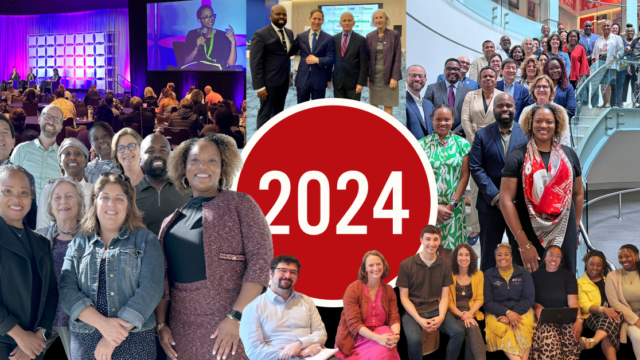
In 2024, the Big Cities Health Coalition (BCHC) and its members met both hopeful and troubling developments in public health.
While overdose deaths began to level off and even decline in many areas, the disproportionate impact among older Black men has continued. City health departments also kept close watch on H5N1, a virulent new strain of bird flu.
We are committed to building on this year’s progress, tackling ongoing challenges, and ensuring our members have the support they need to safeguard and advance the public’s health.
January
BCHC holds a media briefing with the American Lung Association to urge the Biden Administration to release FDA rules to eliminate menthol cigarettes and flavored cigars. BCHC later joins 120 organizations to place a full-page ad in the Washington Post supporting this same measure.
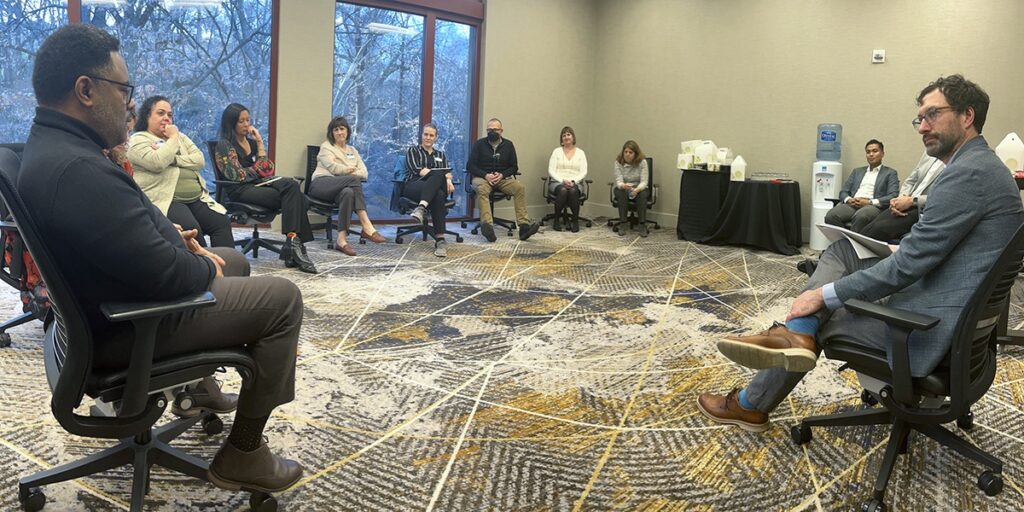
Over the last couple of years, CDC has hosted BCHC’s Senior Deputies cohort in Atlanta (pictured above) to facilitate engagement across the cohort and with deputies at CDC’s centers. Being on campus provides a unique opportunity to explore priority strategies with subject-matter experts and Center directors. On this trip, we engaged with experts from the Office of the Director, the Infrastructure Center and the Injury Center.
Our blog series highlighting how big cities are investing their Public Health Infrastructure Grants kicks off with the story of Shelby County Health Department’s partnership with a local university to make achieving advanced degrees more possible for health department staff.
February
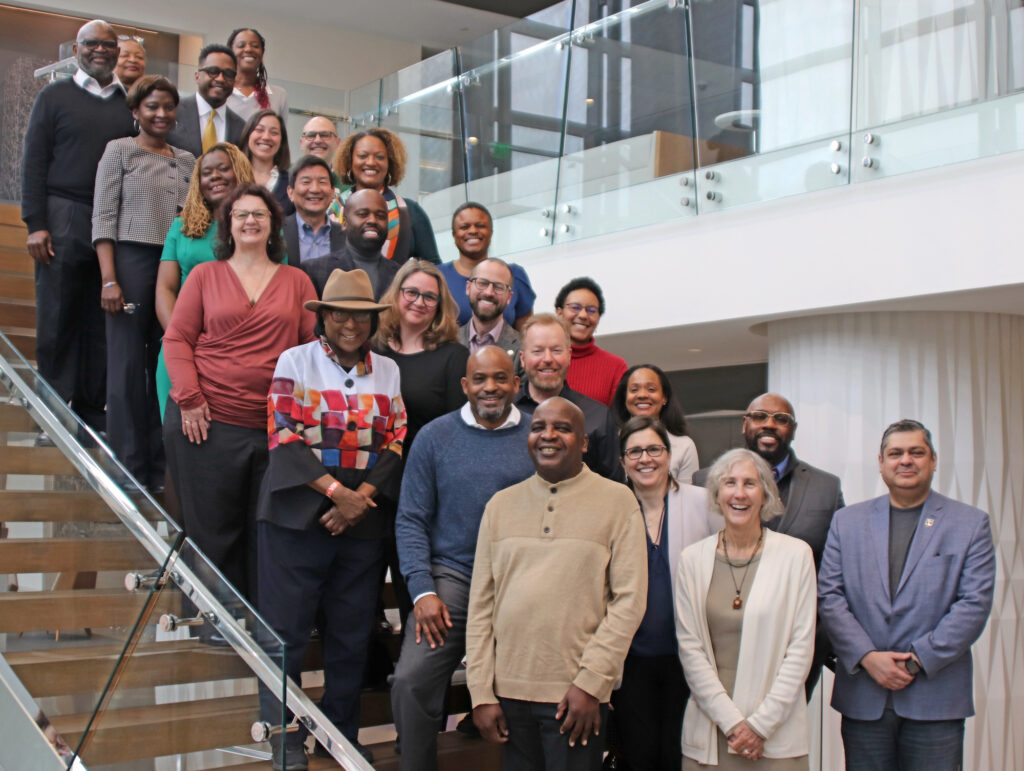
Our members and staff gather in Washington, DC, to share strategies, meet with federal health leadership, and participate in NACCHO’s Hill Day. (Shown below, at right: Mysheika Roberts (Columbus) and Dave Margolius (Cleveland) at then-Senator J.D. Vance’s office.)
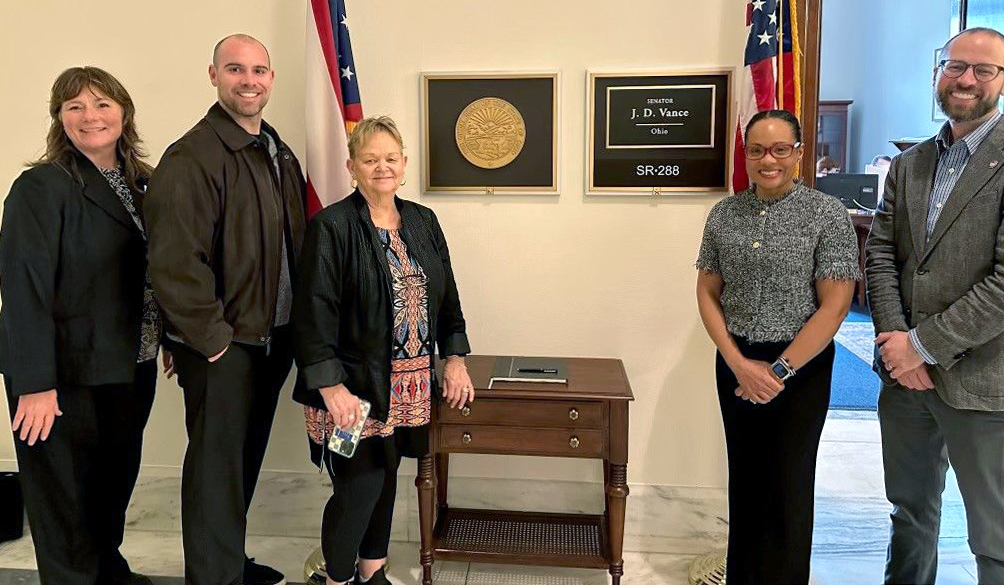
March
BCHC’s Board of Directors issues a statement strongly supporting the MMR vaccine as our best defense against measles and expressing alarm at the Surgeon General of Florida’s lack of support for this well-established recommendation.
April
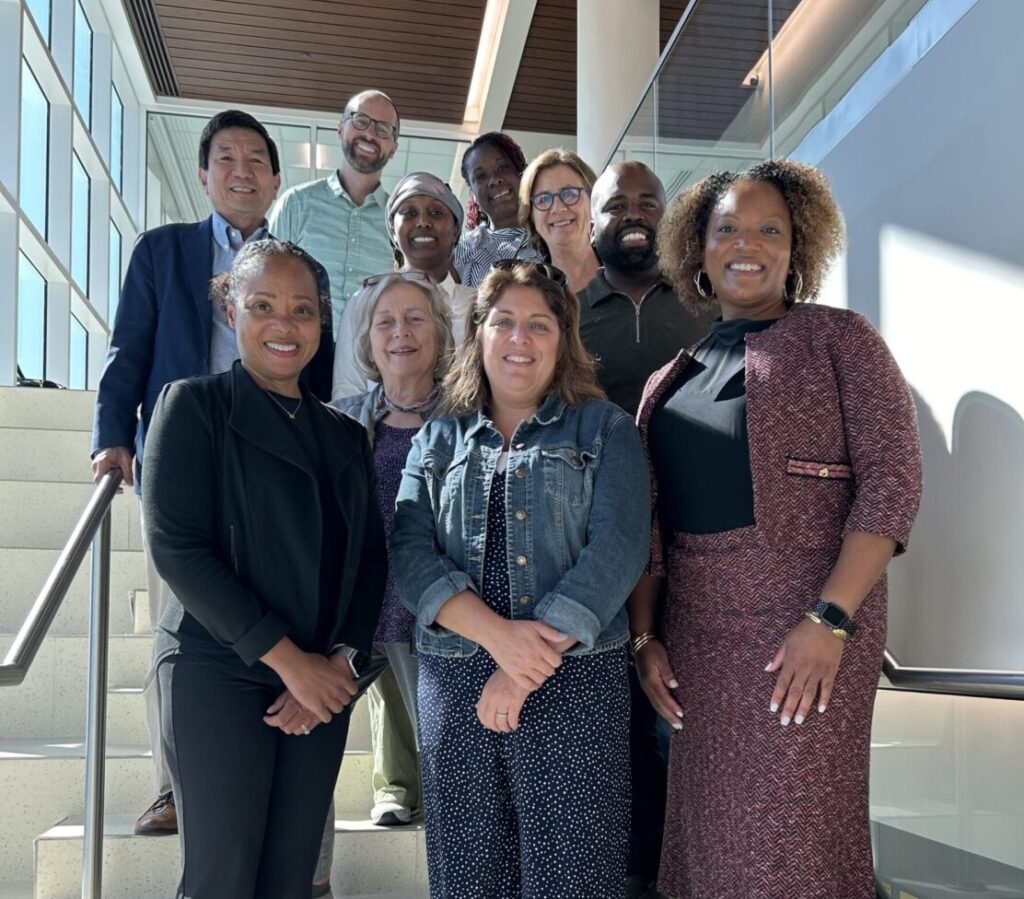
BCHC’s 2024–2025 Board of Directors begins its term, with Raynard Washington, director of Mecklenburg County Public Health, becoming Board Chair.
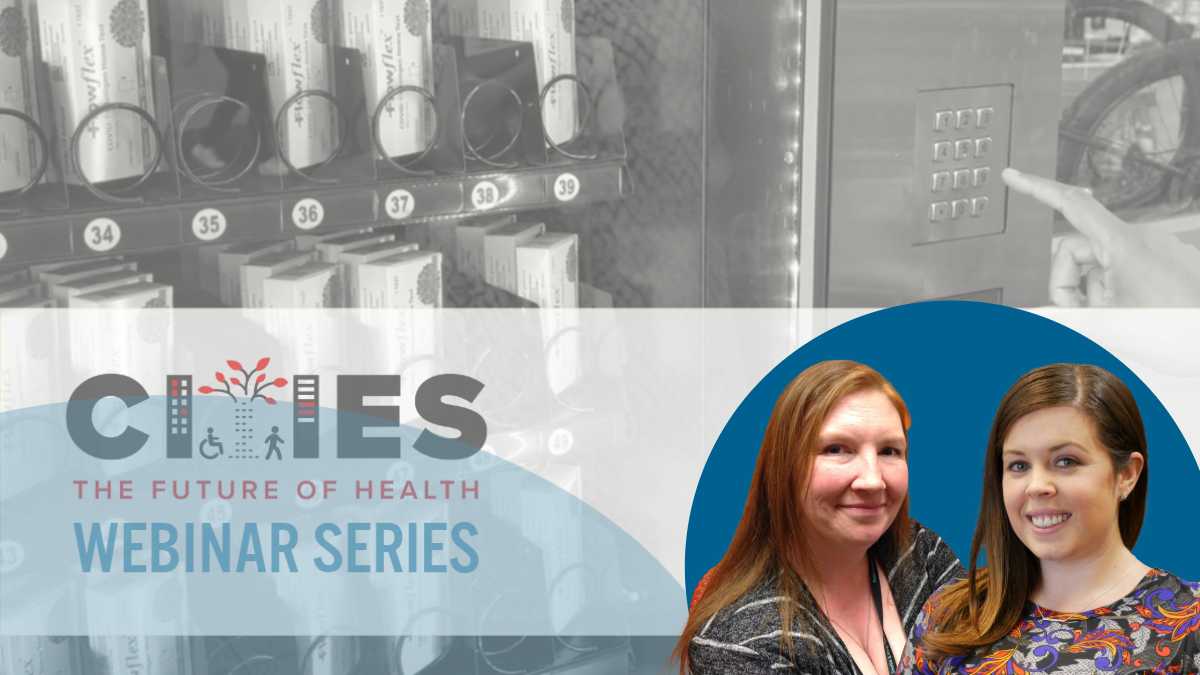
How public health vending machines fit into a larger urban health equity strategy is the subject of our sixth Urban Health Agenda webinar, featuring experts from Southern Nevada Health District and Public Health–Seattle and King County.
With our partners at Prevention Institute, BCHC releases the Opioid Settlement Resources Compendium, designed to help community leaders make informed decisions when spending opioid settlement dollars.
In written testimony submitted on behalf of BCHC to the House Appropriations Subcommittee on Labor, Health and Human Services, Education, and Related Agencies, Chrissie Juliano urges legislators to provide the highest possible funding to CDC. This is one of 87 letters to Congress and the Administration that BCHC either writes or signs onto during 2024.
May
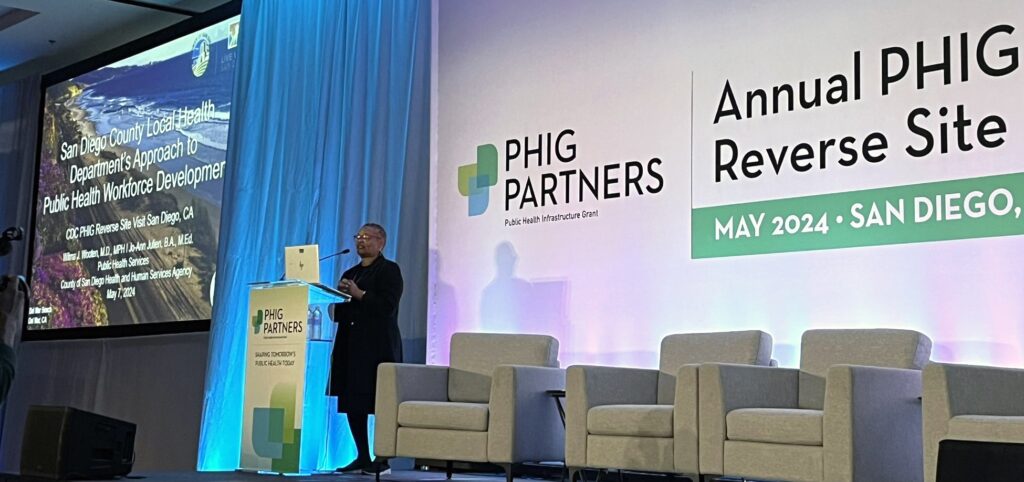
Approximately 25 local Public Health Infrastructure Grant (PHIG) workforce directors participate in an in-person peer network session facilitated by BCHC at the 2024 CDC Reverse Site Visit (RSV) in San Diego. BCHC adapts the World Café model to allow participants to rotate through two discussion topics each including supporting career growth and wellness and morale. BCHC also participates as part of the technical assistance team at the event.
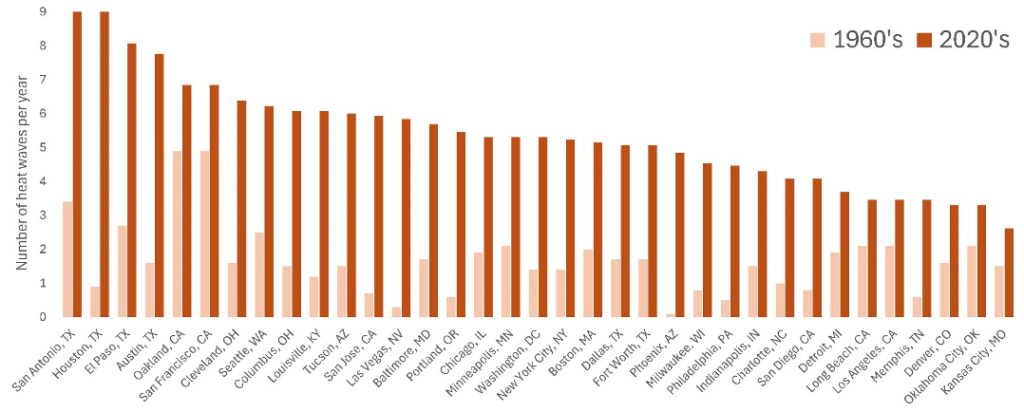
Our annual virtual tour of the Big Cities Health Inventory data platform features both new data and new climate metrics.
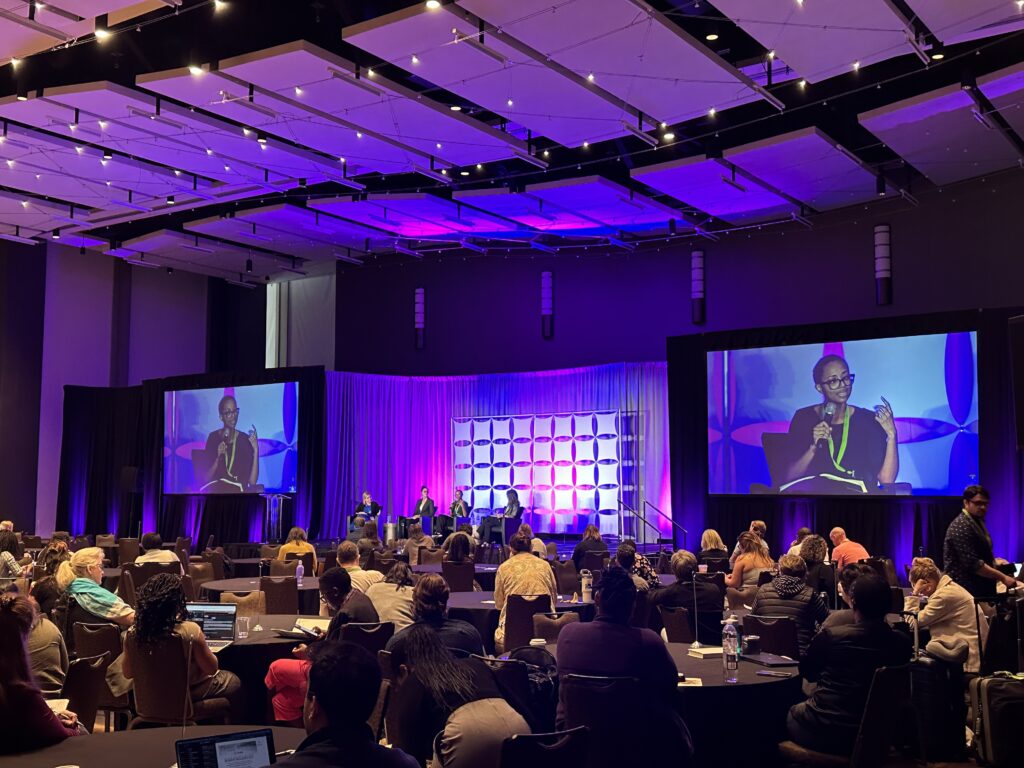
BCHC program manager Mykaela Johnson (pictured above) presents at the Overdose Data to Action (OD2A) recipient meeting in Atlanta. The meeting focuses on how the foundational work of public health can be combined with innovate approaches in data, policy, peer support and prevention to reduce overdoses and save lives.
BCHC and the CDC Foundation convene data modernization leads at the Future of Public Health Data Summit in Dallas to develop a roadmap for local data modernization priorities. Representatives from BCHC member jurisdictions and CDC’s Office of Public Health Data, Surveillance, and Technology highlight challenges, needs, and success stories related to public health data modernization. The summit participants produce three roadmaps that BCHC members have used to identify collaborative project opportunities. Collaborative problem solving is the cornerstone of BCHC Senior Deputies in-person meetings. In 2024, activities include exploration of the role of public health in addressing and planning for the impact of climate change on health, well-being, longevity, and equity and a peer consulting session focused on a community safety initiative in a member city. A Dallas meeting in May also features a change management workshop focusing on readiness for change and understanding and changing culture.
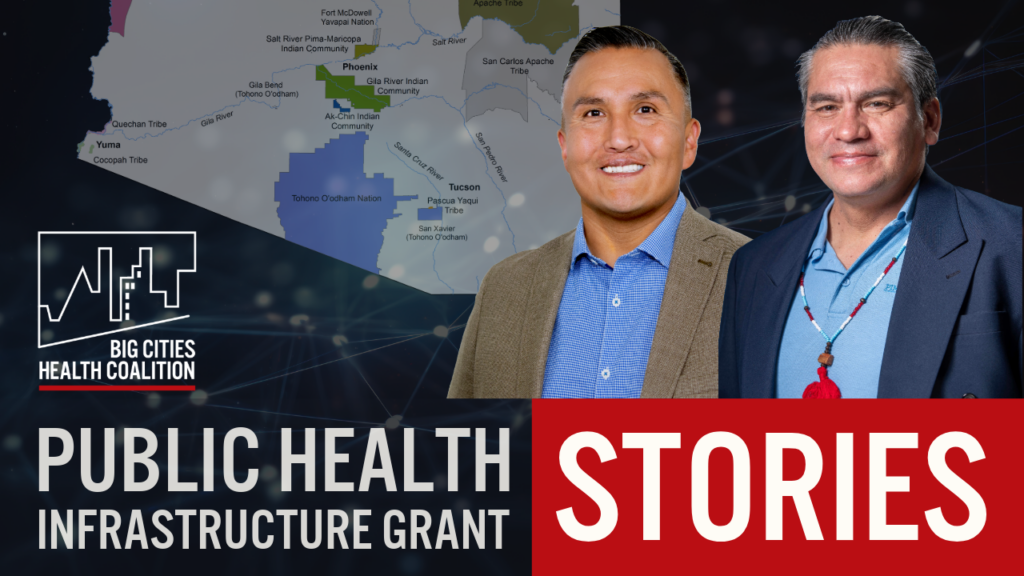
Another BCHC Public Health Infrastructure Grant story features our two Arizona members – the health departments in Maricopa County and Pima County – hiring the state’s first-ever tribal liaisons to strengthen connections between the health departments and tribal communities in the area.
June
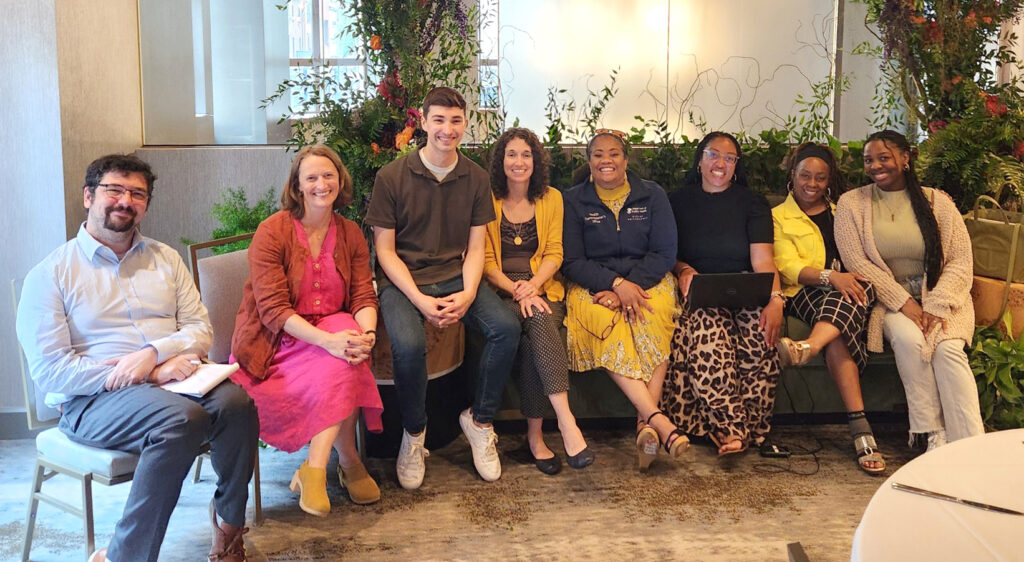
BCHC Senior Deputies select member cities to explore approaches to public health challenges, institutional transformation and local visions for health and equity. Our hosts in June, Frank Franklin and his team at the Philadelphia Department of Public Health, present their racial equity approaches, substance use/opioid-related issues and solutions and CDC PHIG strategies.
The Chicago Department of Public Health’s quick and comprehensive containment of a measles outbreak in March – 33,000 vaccines administered – leads to two reports from CDC holding up their response as a model. Chicago’s health commissioner, Simbo Ige, and BCHC’s executive director, Chrissie Juliano, publish an op ed in The Hill detailing how successes like these illustrate the doggedness of local health departments who must regularly respond to emergencies with meager support.
July
BCHC staff join members and partners at the NACCHO360 conference in Detroit to present work on best practices in public health communications.
As Congress begins discussing drastic cuts to CDC’s budget, BCHC writes to the House Committee on Appropriations leadership imploring them to reject the proposed cuts. “We are incredibly concerned [for example] about the complete elimination of CDC’s Injury Center, including the Opioid Overdose Prevention and Surveillance program,” says Chrissie Juliano in the letter. “This program is one of few federal resources that flow directly to local communities to address overdose.”
August
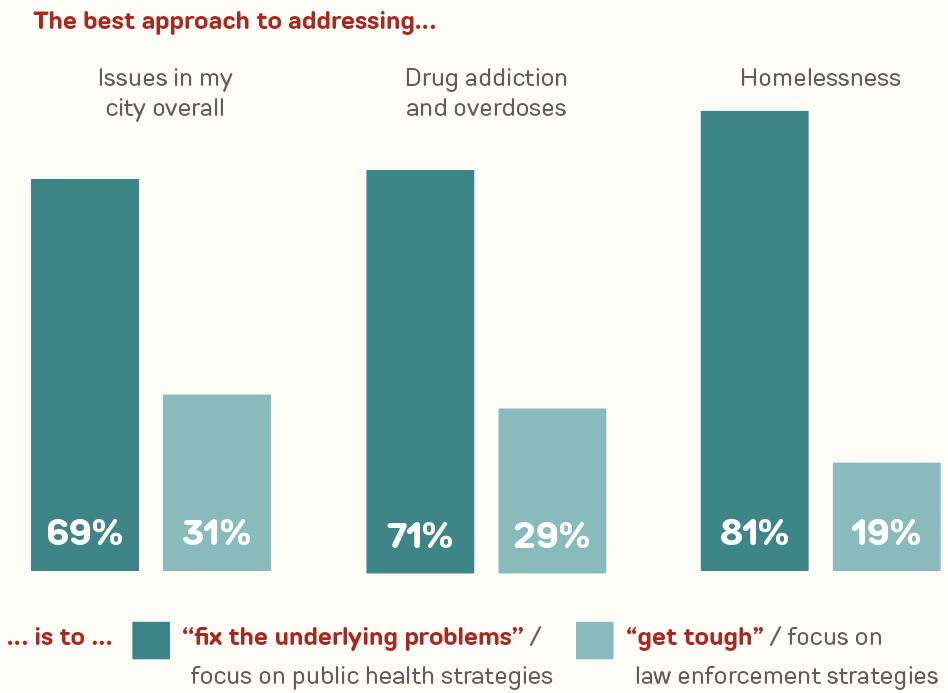
As cities work to address the foundational issues at the heart of drug overdose and homelessness, BCHC conducts polling research and releases a messaging playbook to help communicate the value of public health’s role in this work. Our webinar is one of 17 presentations BCHC does to disseminate these findings.
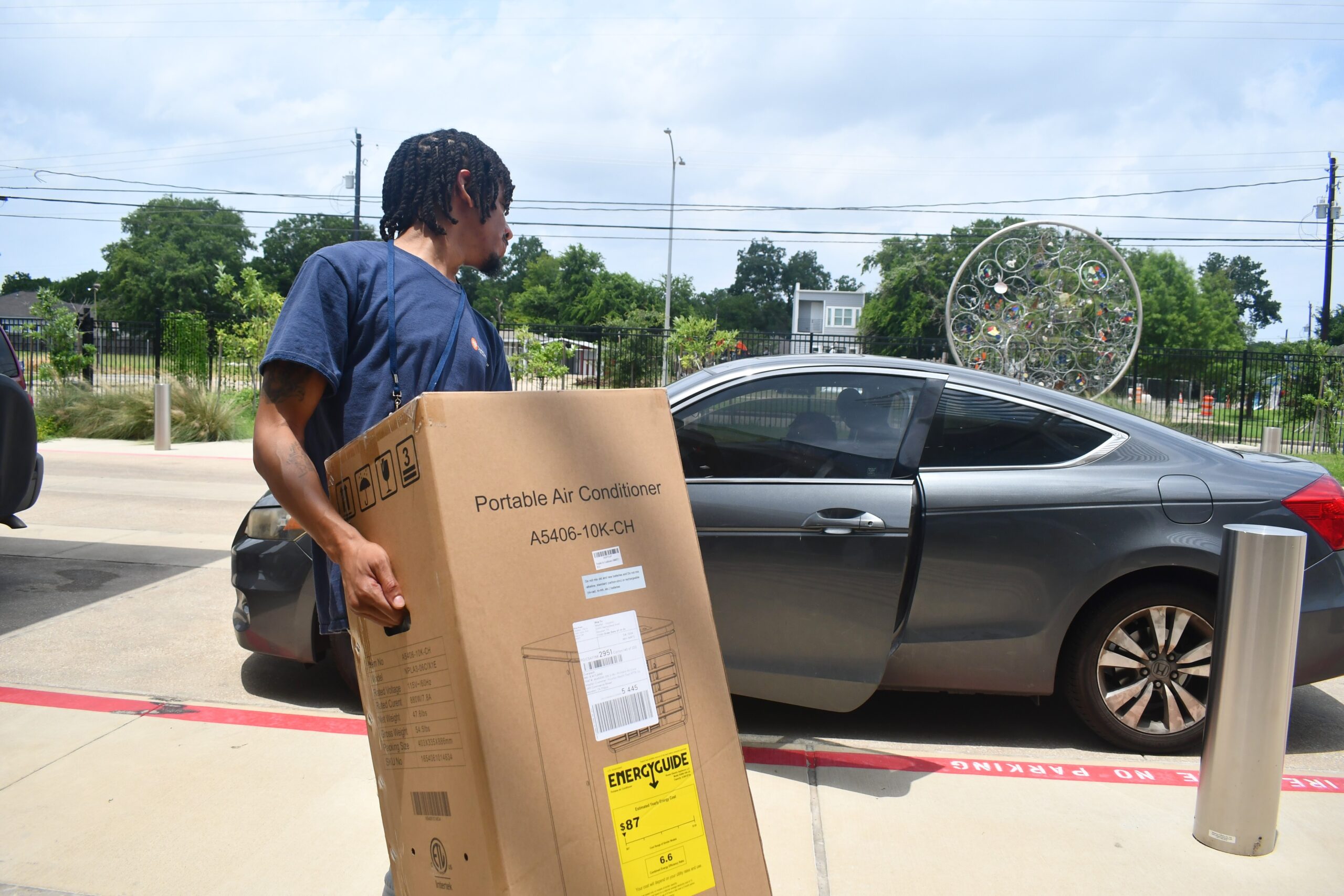
Analysis of our latest city health data shows a slowing in drug overdose deaths and increasing impact of heat waves on urban health. In both cases, addressing racial health disparities continue to remain a priority.
The early end of the Bridge Access Program – which leaves tens of millions of uninsured and underinsured Americans facing unaffordable costs to get the COVID-19 vaccine – prompts a BCHC media briefing to explain the consequences.
September
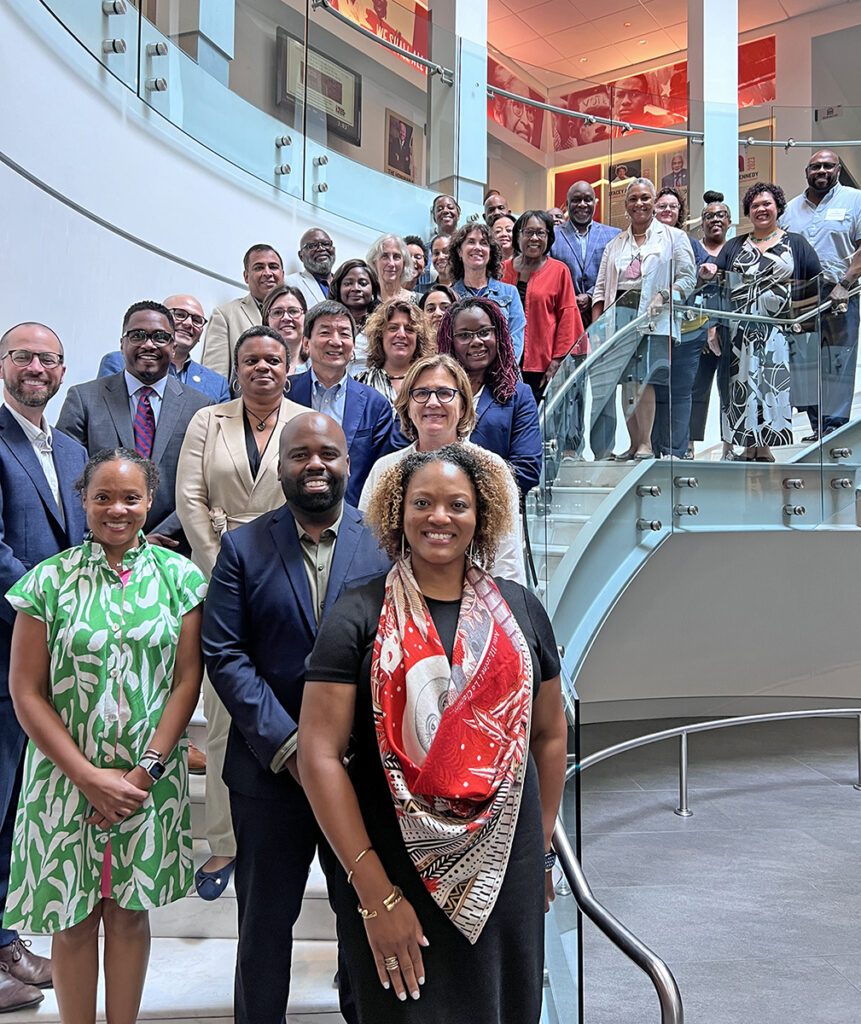
Michelle Taylor (pictured in front of group above) and her colleagues at the Shelby County Health Department, host BCHC’s second in-person member meeting of the year in Memphis. In addition to the usual strategy sessions, a tour of the National Civil Rights Museum was a highlight.
In collaboration with BCHC, Drexel’s Urban Health Collaborative analyzes pay structures in 11 large urban health departments to understand workforce needs and challenges. The study reveals trends that can inform future improvements in pay, benefits, and competitive hiring practices.
BCHC again urges Congress to maximize funding to CDC to support local public health infrastructure and key programs.
October
Having become an independent 501c3 for the first time in 2023, BCHC receives its first direct funding from CDC. The five-year award represents a significant investment in the organization’s capacity to support public health infrastructure, workforce development, and data modernization in America’s largest urban areas.
As overdose rates begin to fall nationally, and in individual cities across the country, BCHC holds a media briefing to explain public health’s role in this welcome shift, along with the work that still needs to be done to save lives and eliminate disparities.
November

Kate Donaldson joins BCHC as our first Senior Director of Programs. She previously served as the Deputy Director for the St. Louis County Department of Public Health and numerous other leadership roles in local governmental public health.
December
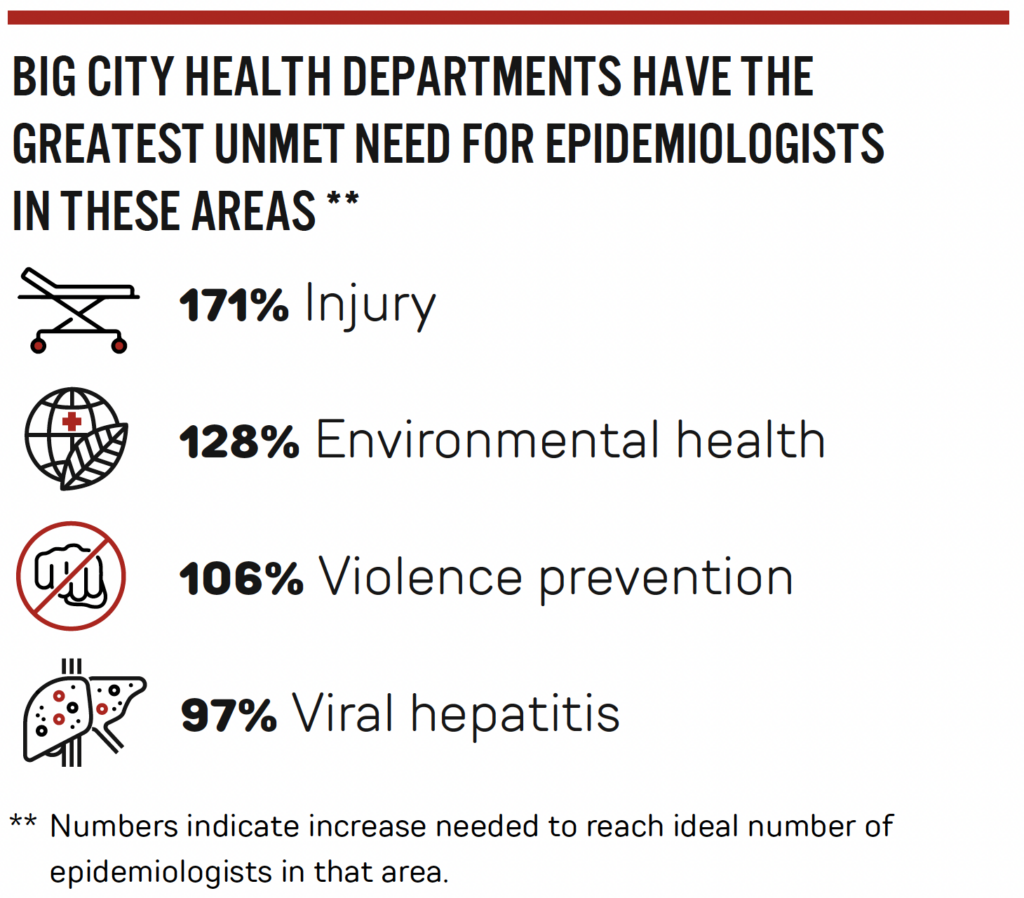
BCHC and the Council of State and Territorial Epidemiologists release a report showing that our nation’s largest urban areas do not have the number of injury and disease detectives needed to fully protect and promote the public’s health.